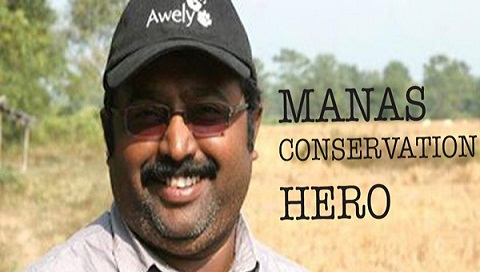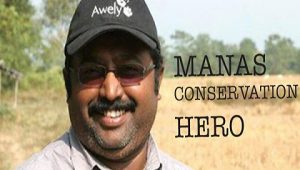Assam-based ecologist and conservation activist Bibhuti Lahkar has become the first Asian to be awarded the prestigious ‘Heritage Heroes Award’ by the International Union for Conservation of Nature (IUCN).
About Heritage Heroes Award :
The Heritage Heroes award aims to recognize the outstanding efforts of a few brave people, around the four corners of the world, who relentlessly invest efforts to make a difference in the way natural World Heritage sites are conserved, sometimes despite life-threatening situations.
- The award is both a celebration of the places and people that inspire us, and a wake-up call on the reality of threats on the ground.
- IUCN received over 30 nominations for the Heritage Heroes awards from across its World Heritage networks. The selection panel, led by experts of the IUCN World Commission on Protected Areas (WCPA), has shortlisted three nominations for the Heritage Heroes awards, which will be launched at the IUCN World Conservation Congress.
- The Heritage Heroes award is inspired by the fascinating stories of outstanding individuals, such as Jeffrey Lee, who was recognized at the 2014 IUCN World Parks Congress in Syndey for his determination to protect his ancestral land from the pressures of the mining industry.
- The objective of this initiative is to inspire people to value the importance of natural World Heritage sites and recognize the need to collectively invest in their conservation.
About Bibhuti Lahkar :
Bibhuti started working in Manas sanctuary in 1999 as part of his PhD, focusing on the management of grasslands of Manas with particular reference to the Critically Endangered pygmy hog, which is found nowhere else in the world. This work meant he had to stay near the park and traverse a landscape that was greatly ravaged by activities of militant groups operating in the area.
- The then young student had to build ties not just with forest personnel in Manas, but also with local residents who were wary of strangers.

- For years, he was the only link connecting Manas with environmental scholars. As there were no role models to look up to, Bibhuti drew his own roadmap to support local communities while bringing positive changes on the ground.
- In strategic places where wildlife was particularly vulnerable, Bibhuti held dozens of public meetings in which locals were made aware about the value of Manas as a natural World Heritage site and as an ecotourism destination. While Bibhuti sought help from local communities, he was also resolved to empower youths to gain opportunities for sustainable livelihoods.
- With no external aid available, he singlehandedly motivated about 100 youths to learn the basics of wildlife monitoring and act as tour guides. They are engaged in ecotourism ventures and support their families.
- Bibhuti played a critical role in the rehabilitation of surrendered poachers, enabling them to lead a dignified and socially meaningful life.A fact not known to people away from Manas is that his team trained around 600 members of local grassroots NGOs, including ex-poachers who now act as protectors of Manas.
- As a step toward empowering communities, he focused on women and offered them regular income opportunities. More than 100 ‘self-help groups’ were formed, encouraging women to engage in alternative livelihoods such as food processing, weaving and fishery. This came as a succor in an area where income avenues were scanty.
- He oversaw the installation of a 14-km long electric fence to safeguard around 1,000 economically weak households from elephant depredation in a buffer area of the World Heritage site. No causality of humans or elephants was recorded since it was installed in 2013.
The work accomplished by him and his team, along with key forest department personnel, resulted in threats to diminish to such an extent that the site could be removed from the List of World Heritage in Danger. Bibhuti Lakhar is a self-confessed conservationist dedicated to Manas Wildlife Sanctuary, describing himself as a guardian of this exceptional landscape.






